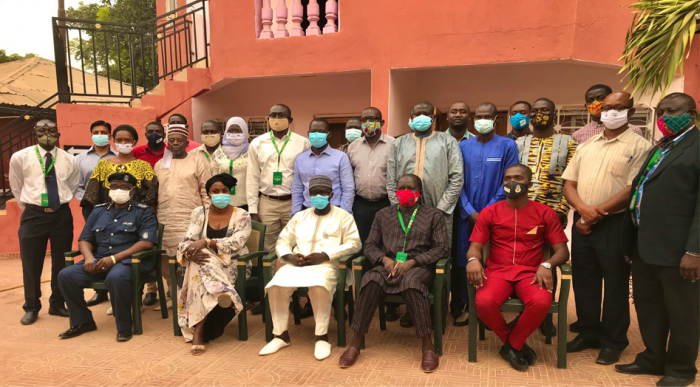
The forum seeks to create awareness among stakeholders and the general public on effects of lead on health and the environment and the need for a regulation on lead and other chemicals in products.
Research has shown that lead based paint is in use in many countries including The Gambia and it is mostly used to paint toys, furniture, the interior and exterior of homes which has effects on both human health and the environment.
Speaking at forum, Dodou Trawally, executive director of National Environmental Agency reminded that lead is one of the metals that are still used in ‘our daily lives’ and are known to cause serious health complications especially among children and pregnant women.
“We still continue to live with these products and we have learned over the years that there are products that are labeled to be lead free which is actually not the case”. He noted
For this reason, he said, the agency thought it necessary to engage and sensitize people per their mandate for regulating environmental pollution.
Sainey Touray, chairman of the National Assembly Select Committee on Environment, indicated that The Gambia government has shown commitment to the protection of environment as a vital component of sustainable development.
To this end, the government has partnered development partners such as GEF and UNEP in the implementation of various multilateral environment agreements such as those dealing with the sustainable and sound management of chemicals and waste.
“When lead paint is used in homes, schools and playgrounds, young people are directly and constantly exposed to high levels of lead from paint chips and in dust or soil. Lead poisoning can have life-long health impacts on children, including: reduced IQs, learning disabilities, hypertension and seizures.” Touray added.
Bai Bittaye, programme officer, Chemicals and Pesticides at NEA in his presentation, said The Gambia does not manufacture chemicals but depends heavily on import for agricultural, health, industrial, education and other purposes.
This, he said, has health and environmental consequences, saying it was because of these hazards posed by chemicals and pesticides that the pesticides Registration Regulation 1994 and Hazardous Chemicals and Pesticides Control and Management Act 1994 amongst other acts, were enacted.
Joe Bongay, Chief Executive Officer of Young Volunteers for the Environment pointed out the effects of lead, noting that developed countries banned lead some forty years ago due to its life-long effects on human health and the environment.
“Based on our research findings which was conducted in 2017, we’ve realize that 80% of the paints imported into the country went beyond the global standard which prompted us to embark on an awareness raising campaign through radios, TVs to sensitive people on these issues of concern.”




